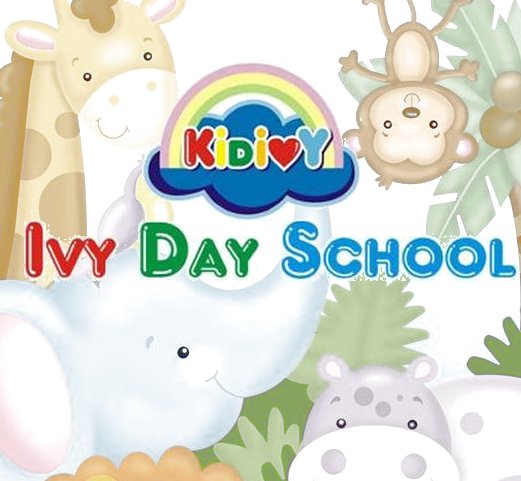When many of us imagine gap years, we tend to think of expensive programs abroad or at sea, but many teens opt for volunteering or working instead. The world high school graduates are looking at is one unlike ever before, but there is still something formative out there for every student.
What is a gap year?
A gap year is a year-long break a student takes from schooling, typically between high school and college or between college and graduate school, for personal growth. This time off serves as a way for students to take a break from academic stress, gain new experiences, and learn about themselves.
David Hamburger, a New York City native and Dalton School alumnus, deferred his 2011 admission to The University of Chicago in order to devote himself to a year of service work for multiple organizations. Hamburger volunteered at Habitat for Humanity during the fall while also working for an educational development nonprofit called Pencils of Promise. As a volunteer at the relatively new organization, Hamburger was given a great amount of responsibility, which led to an internship with its International Programs team in the spring of his gap year. At 18, Hamburger was responsible for spearheading an overhaul of Pencils of Promise’s data storage, supervising four junior interns, and training new hires. After applying to Columbia University during the fall of his gap year, Hamburger was admitted for the fall semester of 2012. By 19, he entered Columbia with a level of real-world work experience practically unheard of for his age.
The Benefits of Taking a Gap Year
A huge benefit of taking a gap year is the life or work experience that comes with it. Contrary to some people’s misperceptions, “it is very often our strongest students who will choose to take a gap year”—not to improve anything specific academically but to foster their own “intellectual and personal growth,” notes Jessica Landis, a guidance counselor at King School, an independent school in Stamford, CT.
That includes self-discovery, which can be achieved richly and deeply from gap-year experiences. “It’s so much better if you take time to get to know yourself in a different situation outside of the academic world,” since you “learn so much more about yourself when you’re actually participating as opposed to just sitting in a classroom learning,” says Susan Avery, a guidance counselor at Harvest Collegiate High School, a Manhattan public school.
Another, often vital reason to take a gap year is to take a breather. Thinking back to her time working at private schools, Avery says the “level of stress seen on children was astounding.” A gap year is “the single best thing a kid can do for themselves after spending 13 years in school.”
Hamburger agrees, adding that it is especially important for students dealing with a physical or mental illness. “One thing I observed at college is how difficult it can be for people that aren’t 100-percent [well] to make it through a semester,” he says, adding that “it paid dividends” for his peers who took time off as a “chance to recharge.”
A survey done by The Gap Year Association and Temple University concluded that those who took a gap year had, on average, shorter times to graduation and higher GPAs than the national norms. Yet, while the academic success is apparent, survey respondents’ high satisfaction with their jobs indicated that gap years may have even more of an impact on personal growth. Students who took a gap year were more mature, aware, and prepared when they entered college.
In today’s state of uncertainty, nearly one third of high school seniors think that going to school in the fall is unlikely due to either coronavirus-related concerns or financial issues. A gap year may be something to consider if you would rather wait to begin college when it is more likely you would get a traditional college experience. Many students (and parents) also don’t want to pay the typical high tuition prices for a remote learning experience.
Debunking the Case Against Gap Years
The low number of students taking gap years in years past can in some ways be attributed to societal pressures and common misconceptions. For many high school students, immediate college enrollment seems like the necessary next step in a strict path. There has been an ingrained fear of facing social ridicule and alienation, falling behind, and ultimately failing professionally as a result of taking a year off. Landis says she recognizes many students fear condemnation from their peers but countered that “once those students talk about what their plans are, what they’ll be doing with that time, I think a lot of students actually look back and say ‘Wow. I wish I had considered doing that a little bit more.’”
Students tend to fear being left behind, since most of their former classmates will be sophomores while they are in their first years, but “that’s ok,” Landis says. “You have done something equally valuable that will also have a really positive impact on your future.” Avery agrees, saying “there’s no such thing as graduating on time. People just want to know that you went to college.”
A huge misconception plaguing high school seniors is the notion that gap years are only for the affluent. “So is money a problem?” Avery says, “Well, no, because you’re not spending. You’re not paying college tuition when you’re on a gap year.” There are certainly students who spend the year in programs for which they need to pay, Avery says, recalling a student who did a semester at sea. But money is not a prerequisite, and there are many tuition-free ways to spend a productive gap year. For “kids who need to just stop the carousel of academics and jump off and go do something different,” Avery says, “there are always options.”
Get the Best Family Activities
Sent to You Weekly!
Hamburger personally found no disadvantages in his gap year, saying it was a “tremendous year of growth” that set him up for the “next four years and beyond.” “Legitimately, every activity I engaged in during my gap year continued at Columbia,” he says.
From his gap year Hamburger attained lifelong friends, a great mentor, the initiative to participate in a future study abroad program, and an established interest in international education. He also considers his work at Pencils of Promise to be “among the most substantial and important work I’ve ever done in my professional life” and believes the experience ultimately led him to attaining his current postgraduate Fulbright-Nehru fellowship.
How to Make the Most of a Gap Year During COVID-19
Hamburger argues that in order to have a successful gap year, a teenager must “be devoting him or herself to something he or she is interested in or cares about.” Keep yourself busy, and maintain good communication with your parents, he advises. While he thinks almost everyone would benefit from a gap year, he also believes those students who are able to take initiative, are struggling with an illness, have a “once-in-a-lifetime opportunity,” or are lacking in maturity would glean the most from taking a year off, while those hoping to just take an unstructured vacation would not do as well.
While gap years are typically seen as a time of travel and exploration, restrictions and risks associated with travel right now leave a gap year spent abroad or driving cross country off the table. Luckily, you can still make the most of an at-home gap year by making it just as productive and self exploratory in other ways:
Help out the Country
Since President Trump declared the country in a state of emergency, AmeriCorps, a network of national service programs devoted to helping different communities, reported that 8,500 members and volunteers have helped nearly 1.3 million people. Volunteers can choose to commit to anywhere from three months to one year of service, and can address and combat a variety of community issues from mentoring the youth to sustaining national parks. In addition to being a rewarding experience, volunteers are also paid a stipend, potentially offered housing, and have the opportunity to earn college credits.
“We’ve got about 75,000 slots in 21,000 locations each year with thousands of individual organizations. I like to say that if you have a passion, we can find you a purpose to match,” Samantha Jo Warfield, a spokesperson for the Corporation for National and Community Service, told Forbes.
Volunteers can access the Segal AmeriCorps Education Award, a post-service benefit earned by those who have successfully completed service through AmeriCorps. This award can be helpful in paying off college loans and other expenses at higher education institutions.
Take Online Courses
Whether you are getting ahead by fulfilling a requirement or exploring your interests, online courses are a great way to be productive and help decide on a major later on.
Work Locally and Save Money
While job opportunities are limited and social distancing is still a priority (and likely will be for a while), some local places in your area may still be hiring and this is a great way to save up money while gaining experience working professionally. Look into remote internships and job opportunities if you feel more comfortable working from home.
The volunteer search engine All For Good is now offering searches specifically geared toward remote work-from-home volunteer opportunities. Roles include jobs in gender equality, jobs writing letters to health care workers, and jobs virtually tutoring children globally.
Volunteer for a Political Candidate
Whether on a local or national level, young adults can get involved and strengthen their communication and professional skills by encouraging people to register to vote, volunteering at polling locations, or helping a candidate reach larger audiences on social media.
Work on Your Personal Development
There are many ways to express yourself creatively, even from the comfort and safety of your own home. Whether you want to create a blog, learn a language, or pick up a new skill, pursuing a passion can stimulate personal growth, all while giving you something exciting to add to your resume.
Taking a gap year is a highly personal and complicated decision that can only be made by the student. The role of a parent is similar to that of the guidance counselor: listen, guide, and support. Avery points out that we do not even know what Malia Obama is doing with her gap year yet, but “the fact that the Obamas are 100-percent behind their daughter taking an academic breather just truly makes my heart joyful because it sends such an important message that everybody needs to slow the heck down.”
Main image: New York City native and Columbia University graduate David Hamburger (left) volunteered for a nonprofit called Pencils of Promise during his gap year. He traveled on behalf of the organization to visit rural schools in northern Laos.
Courtesy David Hamburger
RELATED:
Are Teens Being Pushed Too Hard?
How to Help Teens Cope with Stress





